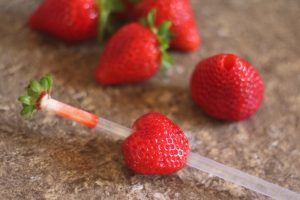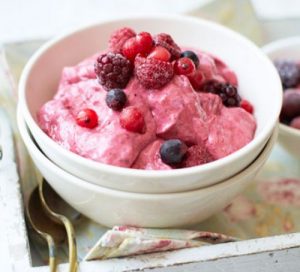There are many things that impact your health, some positive and some negative. It’s up to you to do all that you can to avoid the unhealthy ones. Of course, it won’t always easy. Obstacles sometimes get in the way. But, by learning more about the following factors, which positively impact your health, you’ll be well on your way to better health. The factors covered are quality nutrition, hydration, detoxification, oxygenation and alkalization.
Quality Nutrition
Everyone needs to be concerned about quality nutrition, regardless of where they feel they stand health-wise. There are SO many benefits to proper nutrition that itís somewhat difficult to know where to begin. Here are some of them for your consideration.
Increased Productivity
Recent data indicates that eating foods that are unhealthy for you actually puts you at a higher risk of productivity loss. Some studies put that number as high as 66 percent. All the more reason to think of healthy food as fuel for your brain, donít you think?
Fewer Wrinkles
Foods that contain a high water content help to moisturise your skin. They also contain antioxidants, which help to reduce the likelihood of cell damage and keeps your skin younger looking for a longer period of time. Go one step further and include foods like salmon, on the menu. Salmon is high in Omega-3 fatty acids that are also beneficial to your skin.
Saves Money
By sticking to a healthy diet, you will probably eat less, which means youíll save money on shopping. This is especially true if youíre one to eat a lot of sugary treats and/or fast food meals.
Less Cravings
It probably won’t happen immediately, but eating healthier is a great way to reduce cravings. Lean proteins and complex carbohydrates do an excellent job of stabilising your blood sugar. This helps to alleviate a rapid drop in blood sugar, which causes a craving.
Healthier Smile
The calcium in milk and other dairy products helps to strengthen your teeth. Yoghurt is known to contain microorganisms that are helpful in fighting the bacteria that causes bad breath. Research indicates that Omega-3, found in fish, may even reduce the chances of gum disease.
Longer Life
Although nothing 100%, quality nutrition goes a long way in helping you to live longer. Several studies indicate the possibility of low-meat, vegetarian or diets high in nut consumption very well adding years to your life.
Happier Disposition
The next time you feel a bit gloomy, why not take a minute out of your day to eat a banana or a couple of pieces of dark chocolate? The average-sized banana contains 10 mg of dopamine. Dark chocolate is packed with polyphenol. Both of these substances are known to give your mood a boost when you need it the most.
An added benefit is the fact that learning to eat healthier automatically makes you more knowledgeable about nutrition. So, not only are you helping yourself, youíre helping your family as well. What could be better than that?
Hydration
Staying hydrated is extremely important for overall health. What many people don’t realise is that drinking plenty of fluids is also necessary for optimal heart health. This is especially true in warm weather. Every single cell in your body needs water. So do your tissues and organs. The body requires water to lubricate joints, maintain proper temperature and remove waste products.
Keeping your body hydrated helps your heart pump blood through your blood vessels. It also helps muscles work more efficiently. In other words, when you drink the proper amount of water or other fluids your heart doesn’t have to work as hard.
Water Is Best
Water is the best thing to drink when it comes to staying hydrated, especially when you are exercising. If you’re someone who doesn’t enjoy the taste of water alone, try eating fruits and vegetables that have a high water content. These include, but are not limited to:
* cucumbers
* iceberg lettuce
* celery
* radishes
* tomatoes
* green peppers
* watermelon
* citrus fruits
* strawberries
How Much is Too Much?
You’ve probably heard or read somewhere that you need to drink eight, 8 glasses of water per day. While many people still believe this to be true, some doctors will tell you that it depends on things like climate, the type of clothes you wear and whether or not you’re exercising.
Never let the fact that you feel thirsty be an indication that you are getting dehydrated. If you’re thirsty, you’ve ALREADY reached that point. If you perspire more than average, you need to drink more fluids. If you have a medical condition such as diabetes, you need to drink more fluids. If you’re elderly or pregnant, you need to drink more fluids.
Believe it or not sometimes when you feel hungry, you actually might be thirsty instead. If you’ve eaten within the last two hours, try this trick. Drink a glass of water and wait approximately 10 minutes. If after that time, you no longer feel hungry, you’ll know you were dealing with dehydration.
One of the best ways to monitor your hydration level is to keep track of the colour of your urine. If it’s pale or clear it means you’re properly hydrated. If it’s dark, you need to drink more liquids. Don’t ever take dehydration lightly. Not only can it lead to painful issues such as headaches and swollen feet, it can also lead to life-threatening conditions like heat stroke.
Detoxification
If you are feeling sluggish and lacking energy, it may be time to consider body detoxification. Detoxification, or detox, is the process of cleansing the blood by removing impurities in the liver, where toxins are naturally processed. This allows the body to process and removes toxins more efficiently, which leads to improved health and a better quality of life.
Should You Detox?
It is recommended that everyone detox at least once every year. A detox program can help alleviate symptoms that are otherwise unexplainable, such as fatigue, skin irritation, allergic reactions or even bags under the eye. Even if you donít feel like anything is amiss, detoxing helps to cleanse the whole body and leaves you feeling fresh and rejuvenated.
Cleansing Your Diet
There are many different detox recipes and programs to choose from, all focused on cleansing the body and eliminating toxins. One very popular and tasty way to include cleansing foods into your diet is detoxifying juices and smoothies.
Replacing one meal a day with a detox smoothie goes a long way toward getting rid of toxins and maintaining your metabolism. Stay away from pre-packaged shakes or other chemically enhanced products – the best ingredients to use are all-natural fruits and vegetables. Popular options include:
* raspberries
* blueberries
* oranges
* apples
* spinach
* kale
* bananas
* tomatoes
* and carrots
Any natural fruits or vegetables will do, especially those rich in fibre or vitamin C. With so many healthy foods and flavours to choose from, you can concoct a smoothie that suits your taste and is an excellent addition to your diet at the same time.
Fasting
Taking a break from eating gives our digestive system a chance to rest and rejuvenate. This means it will be more efficient when itís time for it to work again. In order to give your digestive system a break, replace your meals with juices or smoothies for a day or two of fasting. This will be easiest if you do it on a day off so that you can rest and avoid situations that might otherwise tempt you to eat. This detoxifying method may not be much fun during the actual fast, but it will be worth it afterwards when you feel energetic and refreshed.
Stay Away From Toxins
Toxins that we take in either through food or our environment get in the way of our body’s healing processes. Stay away from refined sugars, saturated fats, coffee, cigarettes, and alcohol. Also, try to use natural alternatives to both cleaning and personal care products, to avoid exposure to minor levels of toxins.
Oxygenation
Oxygenation is the process of oxygen molecules making their way into all tissues of the body. Oxygen is not only necessary for breathing, it also plays an important role in every metabolic process, which occurs in the body. Another term for oxidisation is medical oxygen saturation.
How Oxygen is Used
Our bodies use oxygen for a number of different processes. When we breathe, the oxygen in the air that we inhale is diffused into our bloodstream. This oxygen-rich blood makes its way through our bodies and find places where oxygen is needed. Oxygen molecules in our body combine with certain enzymes to help out with many of our bodyís processes. A waste product of these processes is carbon dioxide, which is transported back to the lungs.
Restoring Oxygen Balance
There are several easy things you can do to help restore your oxygen balance. This includes:
* drinking an adequate amount of water
* adhering to an alkaline diet
* exercising daily
* breathing properly
Without the proper amount of water, all body functions are diminished. Filtered water is the best choice, because of its smaller groups of water molecules, which provide better overall hydration on a cellular level.
Adhering to an alkaline diet is explained in more detail below. In a nutshell, it refers to eating more plant-based foods such as kale and spinach and eating less processed and animal-based foods. Along with the diet, itís helpful to take an iron supplement.
The type of exercise you choose is completely up to you. Walking, biking and running are particularly good choices to help oxygenate your body. In fact, in this case, itís actually more beneficial to walk for 15 minutes a day, as opposed to working out at the gym for two full hours.
Yes, there is a proper way to breathe. Whenever possible, avoid breathing from the chest. Itís much better to breathe slowly from your diaphragm and through your nose. Twelve breaths per minute are usually adequate.
Oxygen and Detoxification
A major factor in our health is how efficiently our bodies make use of nutrients on the cellular level. Another factor is how effectively waste and toxins are removed. Our body has several ways of getting rid of cellular waste. Much of it is dissolved in water and leaves the body through urine and sweat. But, some of this waste can only be neutralised by oxygen molecules, in a process called oxidation. Because our bodies need oxygen to process waste, avoiding environmental toxins and maintaining proper oxygen balance leaves us feeling great and could even help prevent disease.
Alkalisation
Alkalizing your body is another wonderful way to stay healthy. Simply put, alkalization is shifting your body’s pH to the proper level. In the event the thought of this makes you nervous, there’s no need to worry. It’s actually much easier than it sounds. The end goal is to have a body which is more alkaline than acidic.
Optimal pH Level
When your body is highly acidic, it tries to balance itself out by getting nutrients from your cells and bones. That’s bad. The optimal pH level, to strive for, is just a little over 7. Once this number is reached, it greatly reduces the possibility of disease and cellular damage. When your body reaches this level, it’s generally easy to maintain, as long as you know how to do so. The process involves replacing the acid you eat and drink with foods that alkalize.
Increased Health Benefits
There are many benefits to an alkaline diet. Statistics indicate that if your diet consists of at least 70 percent of alkaline foods, you’ll improve your quality of life substantially. Health benefits include an increase in energy, a more restful sleep, a slower ageing process, a clearer mind and increase protection against certain kinds of cancer. That sounds wonderful, doesn’t it?
Foods to Avoid
There are several foods and beverages to avoid on an alkaline diet. The top five categories include:
* processed sugar
* meat
* dairy products
* coffee
* soda
Cutting down or eliminating these foods not only helps to balance your pH level, it makes you healthier overall.
Foods to Enjoy
There are many types of foods that are great for increasing your alkaline level. You don’t have to partake in a boring diet in order to get healthier. Think about incorporating some of the following items into your meal plan. Itís probably simpler than you think!
* leafy greens
* chia seeds
* almonds
* beets
* bananas
* garlic
* figs
* lemons
* melon
* tomatoes
* and broccoli
Consequences of an Unbalanced pH Level
When your pH level is out, it has the potential of affecting your health in many ways. Excess acid is stored in fat cells. The reason for this is that the fat neutralises the acid. There is good news, however. Once you reach a pH level of 7, it’s entirely possible to lose as much as a pound of fat per day.
Your arteries are affected by pH levels, as well. Why? When your body is highly acidic, it automatically produces cholesterol to protect the arteries. High cholesterol can lead to heart attacks. The upside to this is, just like the excess fat cells, the extra cholesterol will disappear once your body is properly alkalized.
Believe it or not, thereís also a possibility that youíll shrink, if your pH level remains off balance for long periods of time. This occurs when calcium begins to dissipate from your bones due to the acid.
Once your body begins to balance out and become more alkaline, you may experience something that is often referred to as “alkalize and energise.” This simply means that you will start to automatically feel more energised and ready to take on the world.
Taking Things Slow
When it comes to information about these five factors, which positively impact your health, this is just the tip of the iceberg. What you do with the information is, of course, up to you.
If you feel overwhelmed, as many individuals do, tackle one area at a time. You’re not going to feel transformed overnight. Obviously, it’s going to take some time. But, with patience, you will start feeling much healthier before you know it.





































